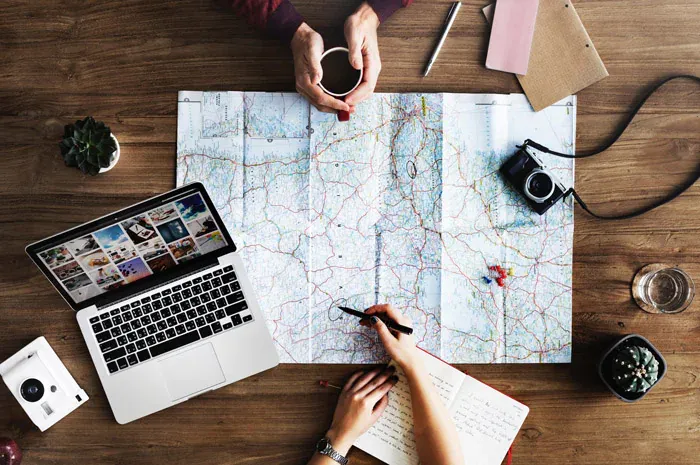
Before you start planning your vacation, it is important that you define a realistic budget. Once you know how much money you can spend, it's time to look for destinations that fit your budget.
Don't worry, there are options for every budget. If you're on a tight budget, consider local destinations or road trips. If you have a little more money available, you can opt for national or international travel destinations.
Remember that the cost of the trip includes not only transportation and lodging, but also food, entertainment and souvenirs. Research the prices of these items in the destinations you are considering to make sure they fit your budget.
Consider the high and low season
Before booking your vacation, it is important to consider the high and low season of the destination you wish to visit. During high season, prices for flights, accommodation and tourist activities are usually higher due to high demand. Therefore, if you want to save money, consider traveling during the low season.
In addition, during low season you can enjoy less crowded destinations, which means fewer lines and less crowds. You will also be able to enjoy lower rates at local restaurants and stores.
Create a daily budget
Once you've established a general budget for your vacation, it's important to break it down into daily expenses. This way, you will be able to better control your expenses and avoid unpleasant surprises at the end of your trip.
To create a daily budget, consider the following aspects:
- Food: calculate how much money you will need for breakfast, lunch and dinner each day. If you plan to eat in restaurants, research the prices of the places you are interested in and adjust your budget;
- Lodging: if you already have lodging booked, divide the total cost by the number of days you will be there. If you haven't booked yet, research the prices of different options;
- Transportation: if you plan to use public transportation or rent a car, research prices and adjust your budget accordingly;
- Tourist attractions: if you plan to visit museums, theme parks or other tourist attractions, research ticket prices;
- Unforeseen expenses: it is always important to have a margin for possible unforeseen expenses such as medical emergencies or loss of personal belongings.
Once you have established a daily budget, stick to it as much as possible. If you have money left over at the end of the day, you can save it for future days or spend it on an extra activity. If you run short of money, review your expenses and adjust your budget for the following days.
Look for cheaper options to eat and buy souvenirs.
One of the best ways to save money during your vacation is to look for cheaper options to eat and buy souvenirs.
Instead of eating at tourist restaurants, look for local places that offer authentic food at more reasonable prices, buy your souvenirs at local markets or stores instead of in tourist areas, where they tend to be more expensive.
Save on transportation and accommodation
One of the biggest expenses on a vacation is usually transportation and accommodation. Here are some tips on how to save:
- Look for flights in advance and on less popular days of the week;
- Consider lodging options such as Airbnb or hostels instead of hotels;
- If you travel by car, share expenses with friends or family;
- Research discount cards for public transportation or car rentals;
- If your destination is a tourist city, look for accommodation in areas further away from the center.
By following these tips you will be able to save money on your next vacation and make the most of it without worrying about your budget.






